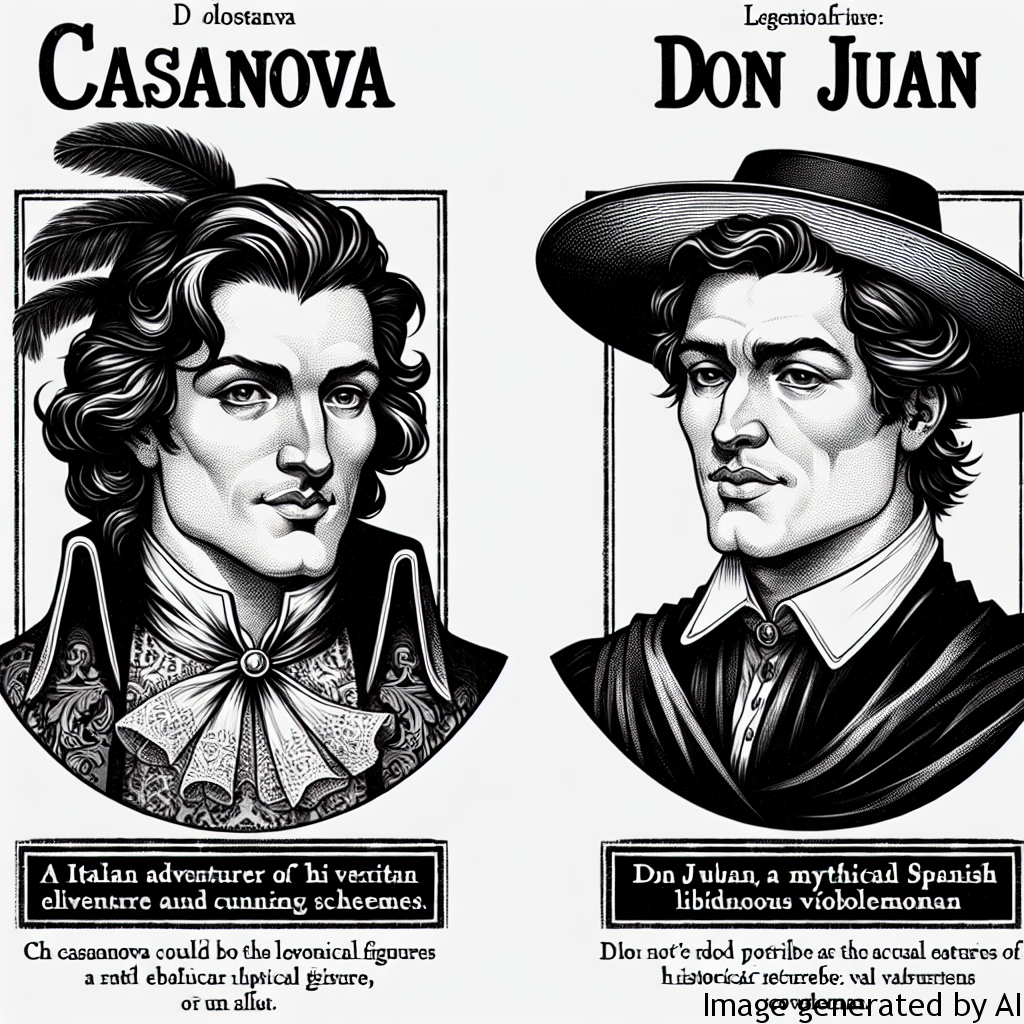Introduction
The romantic legends of Casanova and Don Juan, two renowned seducers in literature, have permeated our cultural psyche. While both figures were portrayed as the epitome of masculine charm, their representation in popular culture often revolves around stereotypes that have profound implications for the understanding of gender roles and their impact on men’s mental health. A comparison between Casanova and Don Juan not only reveals the expectations that society imposes on men but also offers valuable insights into how these gendered expectations can affect their psychological wellbeing.
Description of Gender Expectations and Their Impact on Men’s Mental Health
Casanova
Derived from Giacomo Casanova, an Italian adventurer and author, the term “Casanova” is typically associated with men who possess remarkable charm and are successful in their romantic exploits. This stereotype epitomizes the expectation that men should be assertive and dominant when it comes to romance. While these characteristics can indeed be part of a man’s personality, labeling them as a requirement could lead to increased pressure, which might further lead to stress and anxiety.
Don Juan
Don Juan, a fictional character from Spanish literature, embodies the trope of a reckless heartbreaker. This image reflects societal expectations of men as emotionally detached individuals or even conquerors of women. Similar to the Casanova stereotype, the pressures from these expectations may negatively impact men’s mental health, leading to issues such as emotional repression and depression.
Examples of How Gender Roles Can Influence Men’s Lives
The social expectations imbued in the characters of Casanova and Don Juan can affect men’s self-esteem and relationship dynamics. Men might place undue pressure on themselves to embody the traits exemplified by Casanova and Don Juan, leading to emotional turmoil when they feel they do not measure up. For instance, the pressure to be successful with women might prevent a man from pursuing meaningful relationships, while the expectation of emotional detachment may prevent men from expressing their feelings or seeking help when they are emotionally distressed.
Tips for Improving Men’s Psychological Health Considering Gender Roles
Breaking free from the pressure of fulfilling the roles of Casanova or Don Juan begins with acknowledging that these are unrealistic ideals. Men should be encouraged to define their worth beyond these stereotypes. Opening up dialogues about men’s mental health helps normalize expressing emotions and seeking help when needed. Men should also be educated on the harmful effects of these expectations and be encouraged to build their confidence and individuality beyond societal stereotypes.
Conclusion
In conclusion, while characters like Casanova and Don Juan have significant cultural resonance, it is essential to understand the potential detrimental impacts of the expectations associated with these figures on men’s psychological health. Encouraging men to navigate their identities outside of these gender expectations can foster healthier mental and emotional states.

